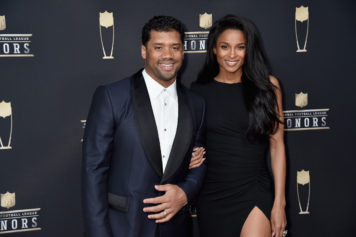Cell phones, Email, Social Media sites and other communication avenues may keep you connected consistently throughout the day. You may text, message, Skype, Facebook each other, IM, and tweet to each other and keep updated with each other’s happenings.
But, just because we are constantly communicating via one of these facets, it doesn’t mean that we are doing so effectively. Effective and successful communication often takes work and some of us go about it ineffectively, particularly within our romantic relationships.
Many of us when communicating with our partners may make detrimental mistakes and can automatically put the other person on the defense at times without meaning to. If you find yourself, in this type of situation, you can change this pattern.
When we are passionate about something, it can be an automatic mental response to react and, at times, in potentially damaging ways.
The fear of being misrepresented, misunderstood and being cast in a negative light, especially with someone we love, innately can cause some of us to go into defensive mode.
Thus, when communicating, while the other person is speaking we may be consciously thinking about what we will say next; how we will defend what we are feeling or doing.
If you are thinking, then you are not listening. If you’re not listening then it is impossible to truly understand the gravity of what the other person is saying and therefore the issue cannot be resolved.
Communication is not only about the words being said.
Effective communication is a whole body experience and how you retain your body can make the world of difference when communicating with someone.
The next time you attempt to communicate with a loved one, take note of certain things such as eye contact, body stance and facial expressions. You will likely find a series of events happening that should be a clue that the conversation is not going as it should if it is to be effective.
To really communicate well and in a way that will make both parties feel comfortable try these simple things:
- Make consistent eye contact. Eye contact shows that you are present and genuinely concerned with what your partner is saying.
- Keep an open and receiving body stance. It is habit and common when feeling defensive to cross our arms. This is the body’s way of protecting itself, and more specifically, the heart. But you are talking with someone you love, who loves you. There is no need to be defensive and automatically go into protective mode. Instead, place your arms in your lap or by your side. This opens up the body and the other person will feel more at ease expressing their feelings.
- Human touch. This is so important. While talking periodically reach out to the other person and gently place your hands or fingers in emotionally triggering spots to put them at ease. A soft touch to the shoulder or side may relax them. It is scientifically proven that we respond to the human touch and a positive response is never more needed than when discussing difficult issues.
- Utilize “I” sentences instead of “you” when discussing being hurt or when solving a problem. When effectively communicating using the word “you” is often taken as an attack word in these types of discussions. It implies that you are accusing the other person of something and they will likely react negatively. Instead, let the person know you are feeling some kind of way about something they have done or said, but make it less accusatory by stating, “I feel” and then stating what they have done to illicit that feeling. They will be more receptive and less likely to feel like they have to defend themselves.
- Don’t do all the talking. A conversation should be 50/50. State your concern and give the other person a chance to respond before you move on to another topic. “An open ear is the only believable sign of an open heart.” —David Augsburger
- Keep the conversation relevant. Drudging up old topics is something many of us do but it is counterproductive. We do this in an effort to gain momentum, have additional ammunition or place blame. But relationships are not about evening the score if they are to be positive ones. Therefore stick to the topic at hand.
- Be in the moment. Remain in the moment truly paying attention to what your partner is saying. When you are planning your response, drifting somewhere else, or judging while your partner is speaking, you are not able to really know what he or she is trying to convey.
Remember communication is about connecting with one another, deepening your bond, and at times, solving an issue. Remember effective communication, with someone you love, should not be about settling a score or coming out on top. At the end of your conversations both parties should feel better, not worse.
More communication tips will be offered in the next two articles later this week. Deeper tips that make a huge difference in the depth of your bond.
Source: Joanne Cipressi, CHt, CNLP


